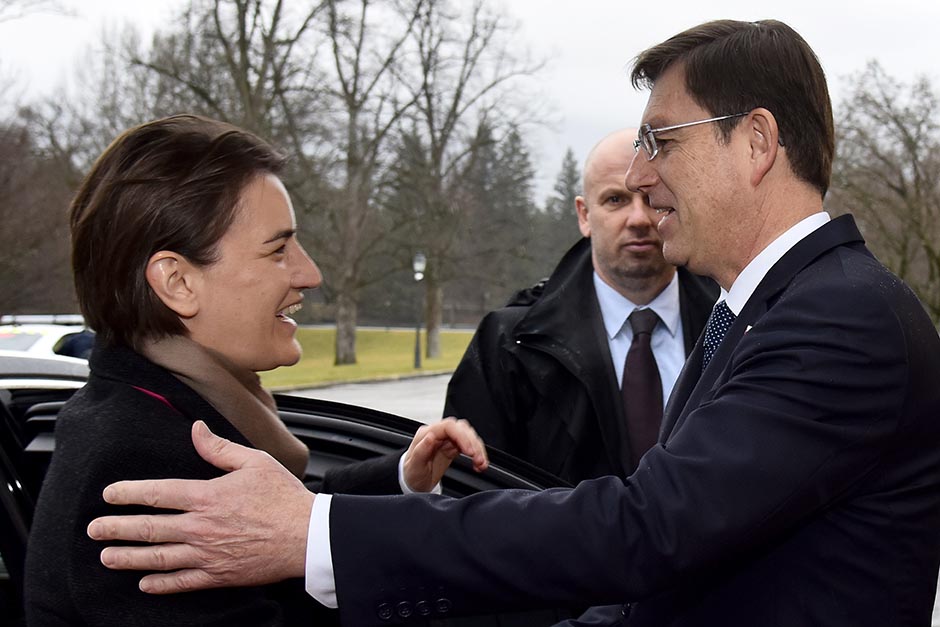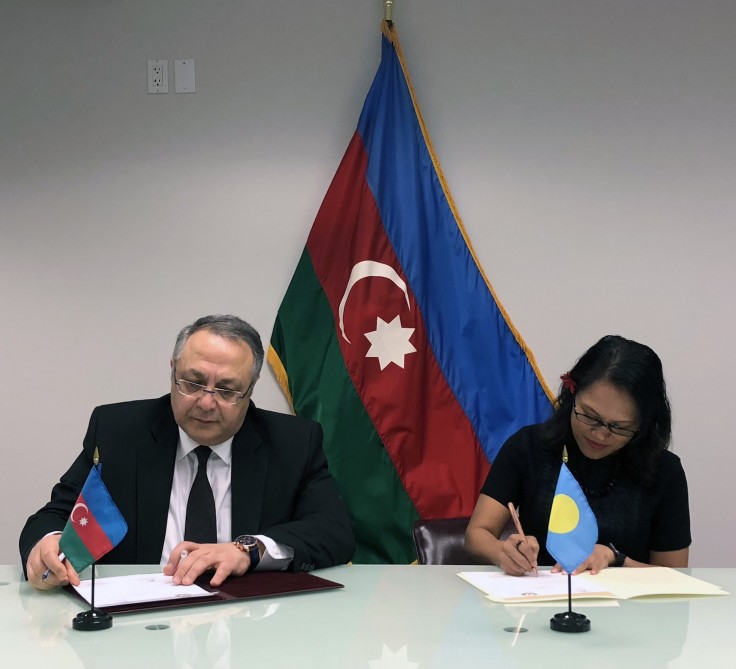EurActiv (2 February 2018)
After a series of violent protests in Iran against the government, the European Union must do its best to preserve the nuclear deal while simultaneously point out the violation of human rights as part of a dual strategy, argues Elmar Brok.
Elmar Brok is a German Christian Democrat politician who is Member of the European Parliament for the European People’s Party (EPP). He was chairman of the Parliament Committee on Foreign Affairs in 1999-2007 and 2012-2017.
Iran was recently shaken by serious protests against the government. Many people were killed. The Iranians are longing for freedom and economic development, but at the same time, they feel capitalistically exploited. They are tired of the regime putting huge sums in proxy wars in Syria and Yemen, while important social subventions for citizens were cut in the state budget. Furthermore, there are corruption charges against religious leaders and the revolutionary guards.
The European Union must take these developments seriously and cannot be too reluctant against the Iranian leadership just because of the nuclear deal with Iran. Especially the right to peaceful demonstrations and freedom of expression must be guaranteed.
Upholding the nuclear deal, however, is still of greatest importance to peace, stability, and security, both in the region and globally. We must not underestimate the meaning of the agreement made in 2015. This is a clear message that Europe must send to US President Donald Trump and his administration.
Stepping away from the deal would not only be counterproductive and has the potential to endanger security globally, it also certainly would not put us in a better position to tackle other disputes with Iran of which there are many to discuss. It seems as if President Trump does not understand much about this agreement, which he once even called “the worst deal ever”.
Let us take a brief look back and recall why the nuclear deal – the “Joint Comprehensive Plan of Action” (JCPOA) – with Iran is of such importance.
After twelve long years of negotiations, on 14 July 2015 the involved countries – Iran, the USA, Russia, China, France, the UK and Germany – concluded the agreement that came into effect on 18 October 2015. The JCPOA, unanimously endorsed by UN Security Council Resolution 2231, ensures that Iran’s nuclear programme remains exclusively peaceful and provides for the comprehensive lifting of UN, EU and US nuclear-related sanctions.
Consequently, in January 2016 the EU lifted all nuclear-related economic and financial sanctions against Iran, with the exception of proliferation-related sanctions and restrictions (such as arms embargo, sanctions related to missile technology, restrictions on certain nuclear-related transfers and activities, and provisions concerning certain metals and software). However, sanctions imposed by the EU in view of the human rights situation in Iran, support for terrorism and other grounds are not part of the JCPOA and remain in place.
The recent developments regarding the US government’s position are ominous. On 13 October 2017, Trump threatened to leave the nuclear deal if it was not amended to permanently block Tehran from building nuclear weapons or intercontinental missiles. This is apparently a wrong assumption. The International Atomic Energy Agency (IAEA) has repeatedly assessed that “Iran’s nuclear-related commitments are being implemented”, as IAEA Director General Yukiya Amano confirmed on 14 November 2017. I do trust in the IAEA’s objectivity and reliability as well as in its verification and monitoring activities.
Regarding the nuclear deal, we are currently facing two challenges:
Firstly, we must save the deal as such since it has proven to be successful. For the European Parliament and the EU as a whole, it is important that there is the continued full and effective implementation of all parts of the JCPOA.
Secondly, we have to avoid a split between the partners of the JCPOA. While the European Union with our High Representative for Foreign Affairs and Security Policy Federica Mogherini has played a crucial role in negotiating the deal, the JCPOA can only work properly if the US remains in.
Therefore, in November 2017, I was in New York and Washington in order to promote the agreement and try to keep the US at our side. The Democrats support the deal, and some Republicans, too.
However, if the US Congress does not reach a decision on how to proceed, there is the danger of Trump terminating the nuclear deal. UN Secretary General Antonio Gueterres confirmed to me that from a legal point Trump could not just terminate the JCPOA unilaterally – by doing so, the US would violate international law.
Albeit these legal issues, the EU considers Trump’s announcement as being in the context of an internal US process – the US President, however, should be strongly advised to take into account the implications for the security of the US, its partners, and the region before taking further steps.
As the European Union stated on 16 October, only three days after Trump’s threat to leave the JCPOA, the nuclear deal is a key element of the nuclear non-proliferation global architecture. Especially at a time of acute nuclear threat, the EU is therefore committed to preserve the JCPOA and to implement all parts of it.
It must be made clear that lifting nuclear-related sanctions have a positive impact on trade and economic relations with Iran including benefits for the Iranian people. It strengthens cooperation and allows for continuous dialogue with Iran.
What the European Union needs now – especially concerning the latest developments in Iran – is a dual strategy: On the one hand, we must do our best to preserve the nuclear deal and keep up talks. On the other hand, we must clearly point at any violation of human rights. As far as human rights are concerned, the EU has to remain credible and cannot afford to be untrustworthy out of false cautiousness.
I am confident that with this strategy we will have a good chance to succeed. We can also not accept the Iranian missile programme, the participation in the proxy wars in Yemen, Iraq, and Syria, but also the policy in Lebanon.
We will never accept the Iranian fight against the right of existence of a Jewish state of Israel.
No comments yet.
-
 "EXCELLENT RELATIONS" BETWEEN SERBIA AND SLOVENIA
The Balkans
02.02.2018
"EXCELLENT RELATIONS" BETWEEN SERBIA AND SLOVENIA
The Balkans
02.02.2018
-
 AZERBAIJAN, PALAU ESTABLISH DIPLOMATIC RELATIONS
The Caucasus and Turkish-Armenian Relations
02.02.2018
AZERBAIJAN, PALAU ESTABLISH DIPLOMATIC RELATIONS
The Caucasus and Turkish-Armenian Relations
02.02.2018
- WHY THE EU NEEDS A DUAL STRATEGY FOR IRAN Europe - EU 02.02.2018
- ILHAM ALIYEV TO RUN FOR PRESIDENCY IN AZERBAIJAN FOR THE FOURTH TIME The Caucasus and Turkish-Armenian Relations 02.02.2018
- EU INSISTS ON SERBIA-KOSOVO DIALOGUE, NORMALISATION The Balkans 02.02.2018
-
25.01.2016
THE ARMENIAN QUESTION - BASIC KNOWLEDGE AND DOCUMENTATION -
12.06.2024
THE TRUTH WILL OUT -
27.03.2023
RADİKAL ERMENİ UNSURLARCA GERÇEKLEŞTİRİLEN MEZALİMLER VE VANDALİZM -
17.03.2023
PATRIOTISM PERVERTED -
23.02.2023
MEN ARE LIKE THAT -
03.02.2023
BAKÜ-TİFLİS-CEYHAN BORU HATTININ YAŞANAN TARİHİ -
16.12.2022
INTERNATIONAL SCHOLARS ON THE EVENTS OF 1915 -
07.12.2022
FAKE PHOTOS AND THE ARMENIAN PROPAGANDA -
07.12.2022
ERMENİ PROPAGANDASI VE SAHTE RESİMLER -
01.01.2022
A Letter From Japan - Strategically Mum: The Silence of the Armenians -
01.01.2022
Japonya'dan Bir Mektup - Stratejik Suskunluk: Ermenilerin Sessizliği -
03.06.2020
Anastas Mikoyan: Confessions of an Armenian Bolshevik -
08.04.2020
Sovyet Sonrası Ukrayna’da Devlet, Toplum ve Siyaset - Değişen Dinamikler, Dönüşen Kimlikler -
12.06.2018
Ermeni Sorunuyla İlgili İngiliz Belgeleri (1912-1923) - British Documents on Armenian Question (1912-1923) -
02.12.2016
Turkish-Russian Academics: A Historical Study on the Caucasus -
01.07.2016
Gürcistan'daki Müslüman Topluluklar: Azınlık Hakları, Kimlik, Siyaset -
10.03.2016
Armenian Diaspora: Diaspora, State and the Imagination of the Republic of Armenia -
24.01.2016
ERMENİ SORUNU - TEMEL BİLGİ VE BELGELER (2. BASKI)
-
AVİM Conference Hall 24.01.2023
CONFERENCE TITLED “HUNGARY’S PERSPECTIVES ON THE TURKIC WORLD"









